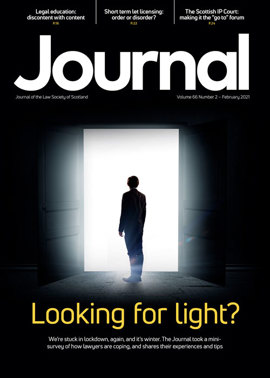The Word of Gold: The gift that keeps on giving

What kind of society do we want to be after we emerge from COVID-19? As we inch towards freedom, it’s a pressing question. There has been much talk lately of being kinder, more appreciative and working together for the common good. At which point reality has come crashing through the window with the Great EU Vaccine Cock-Up, a display of selfishness that flowed from the problems caused by a lumbering, cautious, rules-obsessed bureaucracy, attempting to meet simultaneously the needs of 27 different countries, each with its own agenda.
As the commentator John Ashcroft put it, after Brussels first invoked article 16 of the Brexit treaty, then executed one of the swiftest reverse-ferrets in diplomatic history, “Hats off to the European Commission. It takes supreme political skill to unite the DUP, Sinn Fein, the Guardian, the Daily Express, the entire Tory party, the Irish Prime Minister and even the EU’s own Michel Barnier.”
The response of the UK, which got ahead through a tight-knit taskforce of pharma experts and venture capitalists, given the brief and resources to “do what it takes”, has been to avoid vaccine nationalism, and commit as soon as practicable to making surplus supplies available to other nations. In doing so, it is acknowledging something that lies at the very heart of human progress: the power of reciprocity. Ever since we were, quite literally, scratching each other’s backs on the African savannah, we have built civilisation on the principle that human beings depend on one another. “No man is an island, entire of itself”, said John Donne. “Every man is a piece of the Continent, a part of the main”. What is true of the individual, is true of nations. No country is an island in the sense Donne means it, however it appears on the map. Our best state is neither dependence, nor independence, but interdependence. Cast your handcrafted, lockdown sourdough upon the waters, and it will return after many days.
The power to persuade
Professor Robert Cialdini is a global authority on the nature of persuasion, which he says depends on six principles: reciprocity, scarcity, authority, commitment and consistency, liking, consensus. It is no coincidence that reciprocity comes first. Law firms are in the business of persuasion and good at acknowledging in principle the value of reciprocity. But principle is not always followed by practice. On the contrary, the way firms are run, with an emphasis on narrow specialism, individual billing targets and the indulgence of stars, militates against the culture of teamwork, collegiality and mutual support to which they say they aspire. The expression “silo thinking”, a focus on one’s own practice area and disinterest in the wider firm, has become a cliché, but for many reflects reality. There are real consequences in lost opportunities, and depleted morale.
If change is to happen, it must be led from the top. The US has just inaugurated a new President. On 20 January 1961, it inaugurated President John F Kennedy, and his address will be forever remembered for this phrase, which has been adapted and quoted endlessly by leaders in all walks of life: “And so, my fellow Americans: ask not what your country can do for you — ask what you can do for your country.”
It’s a perfect encapsulation of the perspective that brings the greatest benefit to the greatest number. The person who tries to live sincerely by this precept is not some naive paragon, but one who appreciates that as well as being good for society at large, it is good for them individually. The essence of the human instinct for reciprocity is that if we do someone a favour, they are hard-wired to want to pay us back. Going out of our way to fashion opportunities for colleagues, or support them through difficulty or just take a sincere interest in their world, builds a reservoir of trust and goodwill that sustains and advances our own careers. Clients stick like glue, and are inclined to reward more handsomely the advisers who they know go the extra mile and consistently make sincere, visible investments in the relationship. Nobody ever built a successful professional network who was known only as a taker.
Oration is rarely enough. Build into the rhythm of firm life that teams meet regularly to look forensically at one another’s businesses, identify where mutual opportunities lie and make plans together to pursue them. There is a powerful case for making a formal metric in appraisal of the extent to which people support, mentor, collaborate and work to deliver the whole firm, not just their corner of it. As we claw our way out of a historic human disaster and economic slump, it’s reciprocity’s ancient power that will lead us to herd immunity.
Regulars
Perspectives
Features
Briefings
- Criminal court: Discount season
- Family: Capital values in uncertain times
- Employment: Can employers require staff vaccination?
- Human rights: Protecting the child claimant
- Pensions: a bill with teeth
- Charities: commerce as public benefit?
- Property: Playing safe: on the right track?
- In-house: Wide world of in-house
In practice
- Priorities for our Parliament
- The Word of Gold: The gift that keeps on giving
- TRS: more trusts, more information, more access
- A proper conclusion
- The Eternal Optimist: Putting resolve into resolutions
- Appreciation: Professor Emeritus Robert Rennie
- Ask Ash: Trainee in a rut
- Royal Faculty invites new members






